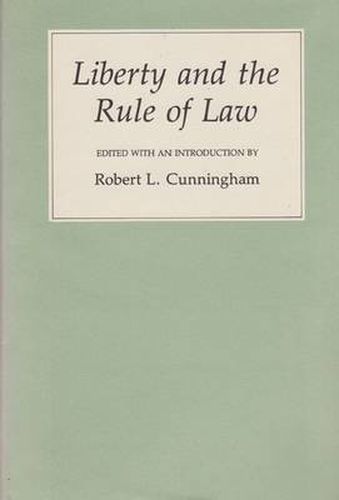Readings Newsletter
Become a Readings Member to make your shopping experience even easier.
Sign in or sign up for free!
You’re not far away from qualifying for FREE standard shipping within Australia
You’ve qualified for FREE standard shipping within Australia
The cart is loading…






This title is printed to order. This book may have been self-published. If so, we cannot guarantee the quality of the content. In the main most books will have gone through the editing process however some may not. We therefore suggest that you be aware of this before ordering this book. If in doubt check either the author or publisher’s details as we are unable to accept any returns unless they are faulty. Please contact us if you have any questions.
Friedrich A. Hayek, distinguished scholar and Nobel laureate, has long been recognized as the moral and intellectual spokesman for classic liberalism and a free society. In January, 1976, a conference on the University of San Francisco campus convened to explore the implications of Hayek’s legal and political philosophy. From that conference Robert L. Cunningham has selected the best papers for presentation in this book. Three of the participants, Joseph Raz, William Letwin, and Gottfried Dietze, discuss the values represented by the rule of law. Raz analyzes the ideal of the rule of law as elaborated by Hayek and others and shows why certain conclusions drawn from it cannot be supported. Letwin examines in detail the relationship of the rule of law to a particular set of decisions of the U.S. courts. Dietze discusses the legitimate role legislation plays in the liberal state.
The concept of privacy and its relationship to the law is discussed by George Fletcher and Walter Berns, but from quite different viewpoints. The former deals with the role of privacy in a legal system, the latter with privacy as a right. Stephen J. Tonsor examines the conservative origins of collectivism. The philosophical foundations of Hayek’s political and legal theory are analyzed by Eugene F. Miller and Tibor R. Machan. And finally Robert L. Cunningham considers how mankind’s limited knowledge can be put to best use in a rapidly changing world. The volume concludes with a brief discussion generated by the various papers.
$9.00 standard shipping within Australia
FREE standard shipping within Australia for orders over $100.00
Express & International shipping calculated at checkout
This title is printed to order. This book may have been self-published. If so, we cannot guarantee the quality of the content. In the main most books will have gone through the editing process however some may not. We therefore suggest that you be aware of this before ordering this book. If in doubt check either the author or publisher’s details as we are unable to accept any returns unless they are faulty. Please contact us if you have any questions.
Friedrich A. Hayek, distinguished scholar and Nobel laureate, has long been recognized as the moral and intellectual spokesman for classic liberalism and a free society. In January, 1976, a conference on the University of San Francisco campus convened to explore the implications of Hayek’s legal and political philosophy. From that conference Robert L. Cunningham has selected the best papers for presentation in this book. Three of the participants, Joseph Raz, William Letwin, and Gottfried Dietze, discuss the values represented by the rule of law. Raz analyzes the ideal of the rule of law as elaborated by Hayek and others and shows why certain conclusions drawn from it cannot be supported. Letwin examines in detail the relationship of the rule of law to a particular set of decisions of the U.S. courts. Dietze discusses the legitimate role legislation plays in the liberal state.
The concept of privacy and its relationship to the law is discussed by George Fletcher and Walter Berns, but from quite different viewpoints. The former deals with the role of privacy in a legal system, the latter with privacy as a right. Stephen J. Tonsor examines the conservative origins of collectivism. The philosophical foundations of Hayek’s political and legal theory are analyzed by Eugene F. Miller and Tibor R. Machan. And finally Robert L. Cunningham considers how mankind’s limited knowledge can be put to best use in a rapidly changing world. The volume concludes with a brief discussion generated by the various papers.